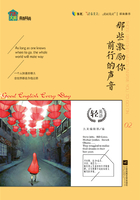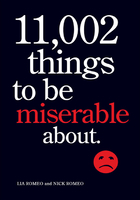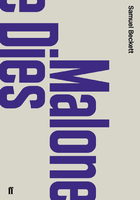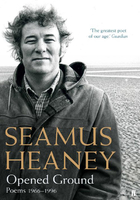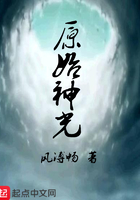PREFACE
NAIVE BEGINNINGS
I don't know where to begin. I never do. My friend and teacher Dani Weinberg told me that the best defense against others' discovering something upsetting about me is to simply feature it, so I'm featuring it.
If you hope this book will tell you how to create successful projects, I want to disappoint you here. After all, if I can't disappoint you now, I'm unlikely to delight you later. I have not written this book to tell anyone what to do. Instead, I've written it with the idea of helping you discover and use what you already know. I've chosen this objective rather than the more common one of simply telling you what to do because I don't know what you should do. However, I believe that you probably already know most of what you need to know to create better projects. I have considerable practice helping others see their own experiences in more useful ways, so that's my objective here.
I intend to make some potentially shocking suggestions in this book. In a later chapter I will most outrageously suggest that you are presently powerful enough to transform your project work into something personally juicy. If you have no track record of creating such juiciness, my suggestions could either disturb or encourage you. I cannot know how you'll react. I want to warn you here, though, before you invest too much time reading this book, that by the time you finish reading it, you might discover some previously unknown sources of personal power and authority. This sort of discovery has always been and always will be dicey.
I've chosen to build this book out of stories. I think of these stories as parables rather than instructions. Parables are different from instructions in at least one very important way: While instructions present key learning points—what you should embrace or avoid—parables don't insist that you carry away any specific meaning from them. One day the parable might seem to mean one thing and another day something quite opposite. To me, this feature more closely tracks how the real world presents information, and since I can have no idea of your situation, we're probably both better off with this tactic than one where I pose as the expert and you as the novice. You're more experienced than a novice, and I'm expert enough to know that I'm not anybody else's expert. You are unavoidably the expert of your own experiences.
I'm writing this book to describe something that cannot be rationally explained: How is it that people continue engaging in project work, even though projects rarely meet their stated objectives? Our methods for making successful projects seem to take the soul out of them. Our insistence on planning straight and narrow pathways into the future frustrates the most expert among us, yet we persist.
I believe we persist because we either have experienced or aspire to encounter what I call coherence. Coherence is that state where we see the world through each other's eyes—where we quite magically catch ourselves seeing the world as others see it. Operational work separates tasks into isolated, homogeneous pieces, erasing this necessity and so depriving us of this possibility. But project work requires us to integrate our puzzle piece with the puzzle pieces of others, who are equally confused. Because of this, projects unavoidably transform us into blind men arrayed around an elephant and leave us struggling to comprehend an ungraspable whole. Our situation encourages us to pursue coherence because our collective success depends upon our integrating orthogonal (meaning really different, even more different than we expected to find) perspectives. This integration is coherence.
The most successful projects always feature coherent experiences, where the participants walk through cognitive walls together. In this timeless state within our time-bound undertakings, our project's goals pale compared with our passionate pursuit of our purpose. Yet the literature focuses on helping us get better at setting and achieving goals, even though that never turns out to be the purpose behind the most successful projects. How curious.
Creating this book has been a series of naive beginnings punctuated with unsettling information. In this process, a true community has emerged around this elephant, and within that community has come the coherence we each always secretly aspire to experience.
I extend my grateful prayers for all the prayers unanswered in this pursuit. As with all writers, my original goal was immediate acceptance. I appreciate my friends, colleagues, and teachers who each cared enough to deprive me of this hollow success. They each in their own way demonstrated their deep caring for me and my work by overlaying their perspectives onto my unavoidably naive beginnings. A higher quality elephant has emerged for us as a result.
The list of contributors is long and impossible to properly appreciate here. I will rely upon the continuing coherence within our shared adventure to properly acknowledge their contributions. For the record, though, these are the principal contributors to this remarkable result.
The earliest reviewers reassured me that I was on the right track. I appreciate my wife and partner, Amy Schwab; my dear friend and teacher Naomi Karten; my brother, III; my folks, Bob and Bonnie Schmaltz; my sisters, Kathy Carey and Carol Smith; Martine Devos; Antoinette Hubbard; Rich Van Horn; and my partner and dear friend Mark G. Gray.
I appreciate my son, Wilder Schmaltz. You brought the elephant and the blind men to life with your extraordinary drawings.
I appreciate my past, present, and future clients who read later versions of the manuscript and provided unwanted but sorely needed insights along with their endorsing comments: Mark Lewis, Rick Gemereth, Walt Syzonenko, Edgar Zalite, Jim Goughnouer, Bill Burnett, and Chuck Kolsted. I appreciate those friends and associates who agreed to read and comment on the work: Jerry Weinberg for finding the first draft unreadable, David Socha for calling me at a nightclub in Minneapolis with searing questions, Dan Starr for the boat ride and the humor, Joshua Kerievsky for an unnameable something, David Wilczewski for challenging questions, James Bullock for opting out, Randy Taylor for the long conversations, and Peter DeJager for considering the proposition; also Brad Reddersen, Brian Lassiter, and Susan Pecuch.
Special blind-men-arrayed-around-an-elephant appreciation for the manuscript reviewers, who read and commented at great and productive length: Thank you Don Yates, Dan Bieger, Irene Sitbon, Jeff Kulick, and Alis Valencia.
Thanks to my copy editor, Elissa Rabellino, for tolerating my feral grammar and making the parables sound right.
Thank you, Craig Neal, for connecting me with Berrett-Koehler, and thanks to the folks at Berrett-Koehler for engaging in the conversation, asking impossible questions, and dreaming big: Steven Piersanti, Jeevan Sivasubramaniam, Robin Donovan, Richard Wilson, and Michael Crowley.
And last but not least, my deep appreciation to Ivan Nahem for pointing out the Master/Slave relationship. It was right there but unacknowledged until you put a name on it.
David A. Schmaltz
Walla Walla, Washington
October 2002


